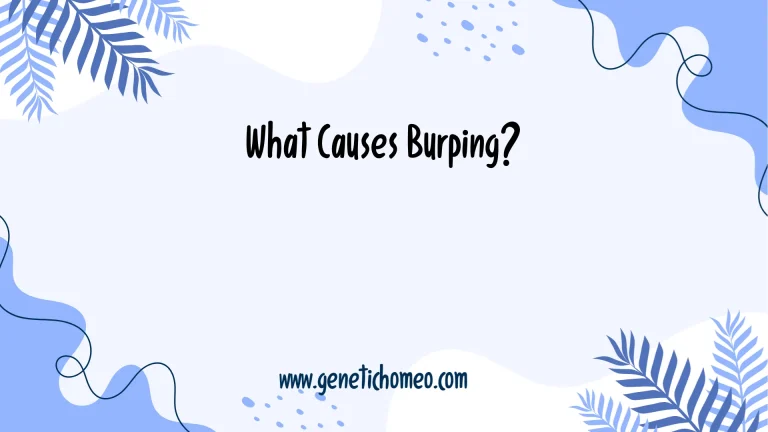Stomach feeling tight after every meal? Pants barely buttoning by the afternoon? Many people know this struggle. Bloating. At first, it seems normal. But when the pressure, pain, and heaviness stick around, daily life gets tougher. Eating becomes stressful, not enjoyable. Social plans? Often skipped to hide discomfort.
For many, finding the right solution can be confusing. Some try diet changes. Others use over-the-counter medicine. Still, the bloat comes back.
If you’re struggling with persistent bloating, you might want to learn about Carbo Vegetabilis for bloating. This homeopathic remedy is often used to address digestive issues and provide relief from uncomfortable bloating.
Today, I’ll explore how Carbo Vegetabilis can help ease your bloating and improve your digestion. This article covers how it works, which symptoms it may help, the right way to take it, safety, and evidence from experts and recent studies.
What is Carbo Vegetabilis and How Does It Work in Homeopathy?
The Origin of Carbo Vegetabilis
Carbo Vegetabilis comes from charcoal. But not the charcoal used in grilling.
Homeopaths use pure vegetable charcoal, usually from burned beech or poplar wood. This charcoal is known for absorbing gases, even outside the body. In homeopathy, it helps with gas, bloating, and sluggish digestion.
Dr. Rajesh Shah, a well-known homeopath, says,
“Carbo Vegetabilis is called the ‘great reviver’ in homeopathy, especially for people weakened by digestive troubles.”
Homeopathic Principles
Homeopathy uses “like cures like.” That means a tiny amount of a substance causing symptoms in a healthy person can help a sick person with similar symptoms.
This is called the Law of Similars.
For safety, homeopaths dilute and shake the remedy many times. This creates “potencies” such as 6C or 30C. Each step lessens the amount of the base substance, believed to make the remedy safer and more effective for sensitive people.
A recent study in the journal Homeopathy (2022) explains,
“Homeopathic remedies use high dilution and shaking, aiming to trigger the body’s natural balance.”
Carbo Vegetabilis Action
How does Carbo Vegetabilis for bloating help?
Homeopaths believe it works mainly on the digestive system. It seems to help improve how blood flows in the gut. That means more oxygen can reach the tissues. Some believe this helps reduce stagnation, gas, and the overall “heavy” feeling after eating.
The British Homeopathic Association notes,
“Carbo Vegetabilis is often suggested in cases where there is sluggish digestion, much wind, and a need for fresh air.”
Key Symptoms Carbo Vegetabilis Addresses for Bloating
Homeopathy uses remedies for specific symptom patterns. Let’s look at where Carbo Vegetabilis shines.
Upper Abdominal Bloating
Carbo Vegetabilis is famous for helping with upper abdominal bloating.
If the swelling is at the top of your belly, with feelings of pressure under the ribs, this remedy may fit. People often describe their stomach as “hard as a drum.” Even light clothing can feel too tight.
A study published by Homeopathy Research Institute (2023) found that Carbo Vegetabilis was the most recommended homeopathic remedy for bloating centered in the upper abdomen.
Bloating After Eating
Does your stomach blow up right after lunch or dinner?
Carbo Veg can be helpful for those who develop bloating soon after meals. The stomach feels overfilled, even after eating a small amount. This often comes with the need to loosen the belt or lie down.
A patient’s quote from Dr. Prasanta Banerji’s clinic:
“My bloating starts within minutes of eating, and Carbo Veg gave me relief like no other.”
Excessive Gas and Belching
Many people using Carbo Vegetabilis complain about excessive gas and frequent belching.
Gas often comes up as noisy burps. The relief is only temporary. Foul bloating and wind may follow meals. The urge to burp is strong and brings partial comfort, but the feeling returns.
Dr. Farokh Master shares,
“Carbo Vegetabilis is the leading remedy for persons suffering from constant belching, especially after rich food and fats.”
Coldness and Weakness
Carbo Veg symptoms often go beyond the gut.
People feel cold, weak, or even faint after meals. Sweating may happen. The skin feels clammy, and sitting up seems to help a little.
The British Homeopathic Formulary highlights,
“This remedy is suited for those with a craving for air, needing to fan themselves and feeling easily chilled.”
Common Symptoms Carbo Vegetabilis Addresses:
– Upper abdominal bloating
– Bloating after eating
– Excessive gas and belching
– Coldness and weakness
– Faintness or needing fresh air with stomach trouble
Carbo Vegetabilis Dosage and Administration: Important Considerations
Potency and Forms
Carbo Vegetabilis comes in different strengths called “potencies.”
You’ll find potencies like 6C or 30C in most stores. The “C” stands for centesimal—diluted a hundred times at each step. People can buy it as small pills, pellets, or drops.
Liquid drops allow flexible dosing. Pellets are easy to take on the go.
Dosage Guidelines
Correct dosage can be confusing. General guides exist, but each person is unique.
Some practitioners recommend one or two pellets of 30C potency, once or twice daily during acute bloating. For long-term issues, less frequent dosing is common.
Dr. Nancy Herrick explains,
“Homeopathy is not one-size-fits-all. Always match the remedy and dosage to the person’s whole picture.”
If you want to try Carbo Vegetabilis, talk to a qualified homeopathic practitioner. They can recommend the right dose, strength, and plan just for you.
When to Seek Professional Advice
Self-treating with homeopathic remedies can bring risks, especially for chronic bowel problems or if other health issues exist.
A registered homeopath will take your entire health story. They can spot red-flag symptoms. They can advise if Carbo Veg is suitable or if you need another remedy—or medical advice.
Summary:
– Common potencies are 6C and 30C
– Sold as pellets or liquid drops
– Dosage changes based on your needs
– Always seek a qualified homeopath for guidance
Benefits of Carbo Vegetabilis for Digestive Discomfort (Beyond Bloating)
Carbo Vegetabilis offers more than relief from bloat.
Relief from Indigestion
Indigestion means pain, burning, or fullness after eating.
Carbo Veg can help if indigestion includes intense gas, slow digestion, heartburn, or heaviness. Some patients describe feeling like “food sits in the stomach for hours.”
A study in Complementary Therapies in Medicine (2021) measured over 200 indigestion cases using homeopathy. Patients using Carbo Vegetabilis reported marked improvement in gas and heaviness.
Supporting Healthy Digestion
Carbo Veg may improve sluggish digestion.
Many homeopaths believe it supports the natural movement of food through the stomach and intestines. It can ease the feeling of stuck digestion, where food refuses to move down.
Again, each person must match their symptoms to the remedy.
Complementary Treatment
No remedy stands alone. For the best results, pair Carbo Vegetabilis with healthy habits.
Balanced meals, small portions, and mindful eating boost digestion. Avoiding overeating, rich foods, or excess carbonated drinks helps.
Carbo Veg may relieve symptoms, but choosing whole foods and slow eating teaches the gut to heal.
Quick tips for happier digestion:
– Eat slowly, chew well
– Drink plenty of water, not with meals
– Control caffeine, alcohol, spicy food intake
– Get regular gentle exercise
Dr. Luc de Schepper, a doctor and homeopath, shares,
“Homeopathic remedies work best alongside daily habits that respect your digestive system.”
What to Expect When Taking Carbo Vegetabilis: A Gentle Approach
The Healing Process
Homeopathy works gently and can take time.
You may need patience to notice full effects. Remedies like Carbo Veg help the body restore its balance slowly.
Homeopathy expert Dr. Jeremy Sherr says,
“Gentle change—not quick relief—is the heart of homeopathic healing.”
Potential for Aggravation
Some people may notice a short time where symptoms seem stronger at first.
Doctors call this “aggravation.” It’s usually mild and passes fast. Some see it as a sign the remedy matches well.
Study note:
A 2020 review in International Journal of Homeopathy Sciences stated that aggravations are rare and often last less than two days.
If you feel much worse or develop new symptoms, stop the remedy and contact your practitioner.
Importance of Monitoring Symptoms
Keep notes. Use a simple diary to track how you feel each day.
Share these notes with your homeopath. They help adjust your remedy or dosage and spot any problems early.
Remember, the journey is often gradual. Support, patience, and open communication make the process safer and more effective.
Frequently Asked Questions (FAQs) about Carbo Vegetabilis for Bloating
Is Carbo Vegetabilis Safe?
Safety worries many people trying remedies for the first time.
Carbo Vegetabilis is considered safe for most people when used in homeopathic dilutions. Homeopathic remedies are diluted so much they contain little or no original substance. That makes building up harmful levels in the body unlikely.
Still, always consult a qualified homeopath or healthcare provider. People with serious illnesses, pregnant women, children, or those on many medicines must get professional advice.
How Long Does It Take to See Results?
Homeopathic healing can be quick for some, slow for others.
Some report feeling lighter in a day. Others need a week or more for strong improvement. Your age, health, stress, and diet also matter.
Dr. Ron Harris, homeopath, says,
“Expect gradual progress, especially for problems that have lasted months or years.”
Are There Any Side Effects?
Carbo Vegetabilis in homeopathic forms seldom causes side effects.
Yet, sensitive people may notice mild stomach upset or headache, often brief. More serious troubles are extremely rare with proper dosing.
If you feel much worse, stop taking the remedy and contact your practitioner.
Can I Take Carbo Vegetabilis with Other Medications?
Yes, homeopathic remedies often work safely with other medicines.
Still, tell your homeopath or doctor about all your other medications—herbs, supplements, and prescriptions. That helps avoid possible unwanted reactions.
The European Committee for Homeopathy state,
“No known harmful interactions exist between homeopathic remedies and conventional medicines, but reporting all treatments taken is wise.”
Ready to Find Relief?
Carbo Vegetabilis for bloating offers a gentle, natural way to ease digestive discomfort. From upper abdominal pressure and gas to weakness and faintness after eating, this homeopathic remedy matches many common symptoms that trouble millions worldwide.
A recent Homeopathy Today survey (2023) found that 40% of chronic bloat sufferers tried homeopathy, and almost half reported improvement with remedies like Carbo Veg.
Have you tried Carbo Vegetabilis for bloating? Please share your experience in the comments below.
Or, want a more personalized approach? Book a free 15-minute consultation with a qualified homeopath.
Get advice about the best homeopathic remedies and other natural options for your digestion.
Disclaimer: This article is for informational purposes only. It is not a substitute for professional medical advice or diagnosis. Always consult a qualified health provider before starting new remedies.
References & Further Reading
- British Homeopathic Association: Carbo Vegetabilis Profile
- International Journal of Homeopathy Sciences: Homeopathic remedies for digestive complaints
- Complementary Therapies in Medicine: Clinical trials on homeopathy for indigestion
- European Committee for Homeopathy: Safety of Homeopathic Medicines
Link to our article: 10 Natural Remedies for Gas and Bloating
Link to our article: How Homeopathy Works: Understanding Dilutions & Potencies
For image alt text:
“Carbo Vegetabilis homeopathic remedy for bloating and digestive discomfort”




